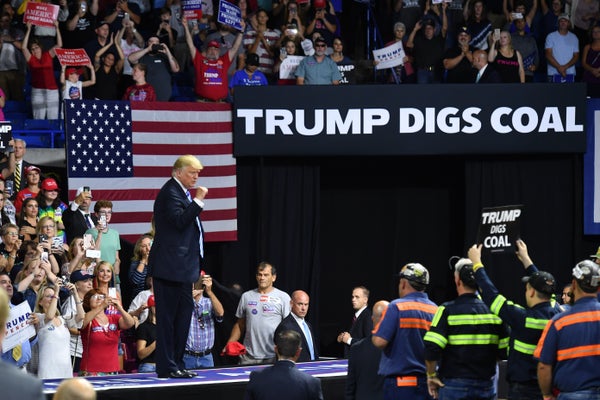This article was published in Scientific American’s former blog network and reflects the views of the author, not necessarily those of Scientific American
Worldwide scientific consensus warns of climate disaster and has made an urgent call for action. Yet, the Trump administration has doubled down on its effort to suppress the science around climate change, burying government-funded studies from public view. While the reality of climate change is not debated among scientists, that same science is dismissed by the Trump administration and a proportion of the U.S. public.
Science, once celebrated, faces increases rejection as the clock ticks on climate change. What underlies the increased out-of-hand rejection of science?
Humanity has an unfortunate history of rejecting science. Nicolaus Copernicus, a Polish Renaissance-era mathematician and astronomer, formulated a model that the sun, not the Earth, was at the center of the universe. This theory was published in the year of Copernicus’s death in 1543 but was slow to catch on. In the early 17th century, the Italian astronomer Galileo Galilei furthered Copernicus’s theory that the Earth spins on its axis and orbits the sun with evidence from a telescope he built. Galileo’s evidence was rejected by Catholic doctrines of the time—the Earth, not the sun, was the center of the universe—and Galileo was tried and convicted of heresy. Galileo recanted to save himself and lived under house arrest for the rest of his life. Some 350 years later, the Catholic Church pardoned Galileo, an acknowledgment that his discoveries were truth.
On supporting science journalism
If you're enjoying this article, consider supporting our award-winning journalism by subscribing. By purchasing a subscription you are helping to ensure the future of impactful stories about the discoveries and ideas shaping our world today.
Science is not a system of beliefs. According to the philosopher Karl Popper, science is the search for truth, not the search for certainty. It is an iterative process of posing a question, designing a controlled experiment to test the question, and making interpretations based on experimental outcomes.
Science is evaluated for its rigor and integrity by a peer-review process that decides the merits of science questions and approaches in making funding and publication decisions. Scientists challenge and debate findings in the published literature and face-to-face at conferences. Across the globe, scientists ask similar questions but from different perspectives, which serves to protect science from nationalistic and political prejudice and agenda. A major share of science in the U.S. is funded by taxpayer dollars in recognition of the importance of science in innovating new technologies and ensuring the health and well-being of our population
Science is not infallible. The path towards scientific truth is rarely a straight line as we are limited by our current state-of-the-art in technology and knowledge. Yet, as science meanders towards truth, scientific consensus is built, validated and evolved over time by a worldwide scientific community that transcends national or ethnic borders. Exact truths about the future do not exist; thus, we can only draw upon past observations to make future predictions.
Scientific literacy that filters throughout the lay public and policy makers is important to understanding why vaccines are safe and efficacious despite anecdotes and conspiracy theories to the contrary. Understanding the fundamentals of scientific practice is important to understanding the difference between climate and weather such that a that a snowy day in April or a polar vortex does not make climate change a hoax.
Just like scientists, we all use data to make decisions and respond to a changing world. We collect data from Fitbits to decide if we have met daily activity goals, from a forecast to decide if it’s warm enough to leave the jacket at home, from a smart phone to decide if my teen’s cell phone usage is too high, or from a thermometer to decide if a fever requires another dose of acetaminophen. The best, most comprehensive data set available, based on spikes in global temperatures, massive insect die-off and melting ice caps, warns that the stakes associated with climate change are higher than ever.
We are abandoning our last greatest hope and assuming enormous risk when our policy makers stand at odds with science without any rational foundation for their dissent. The U.S. has long led the world in scientific discovery and putting science into practice to advance human health, energy, agriculture and food safety. Yet, now, amidst impending crisis, are we to deny our own strength and step back from leadership?
Beyond question, we now understand that the theories of Copernicus and Galileo were correct. Legend holds that Galileo murmured before his inquisitors, “E pur, si muove” (And yet, it moves). If true, then Galileo certainly understood that his recanting would not deter or impede progress and that scientific truth would ultimately prevail.
It is ultimately we who will pay the price for rejecting and failing to act upon the science around climate change. We will be unprepared for the consequences of diminished food and water supply, heightened natural disaster and the emergence or reemergence of infectious diseases. Despite the uncertainties, has history not taught us the perils of rejecting our best evidence-based resource for informed decision making?
